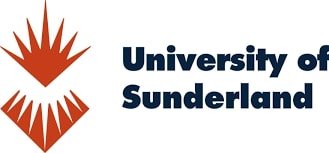- Course Overview

- About University

- Entry Requirements

- Cost of Study

- Scholarships

- Careers

- Admission

Course Overview
The BSc (Hons) Biomedical Science at the University of Sunderland is a professionally accredited science degree that explores how the human body functions, what causes disease, and how illnesses are diagnosed, prevented, and treated. The course is accredited by the Institute of Biomedical Science (IBMS), ensuring it meets the professional standards required for biomedical scientists in the UK.
Students study core subjects such as medical microbiology, immunology, haematology, clinical biochemistry, and cellular pathology. The programme is taught full-time over three years (or four years including a foundation year), offering both theoretical knowledge and practical laboratory experience. Sunderland provides state-of-the-art teaching laboratories, research facilities, and placement opportunities to prepare students for employment in clinical or research settings.
In the first and second years, students cover fundamental modules such as cell biology, physiology, molecular biology, infection and immunity, human defence systems, and core research and laboratory skills. In the third year, students can select specialist modules such as genetics, clinical biochemistry, transfusion science, and other advanced topics. For students choosing placement pathways, a practical work placement or lab-based year is available to gain experience and meet registration requirements.
Teaching includes a combination of lectures, laboratory sessions, seminars, workshops, case studies, and tutorials. Students also engage in independent and directed study, supported by the university’s virtual learning environment. Assessment methods include laboratory reports, essays, exams, group work, case-based evaluations, presentations, and a major research or investigation project in the final year. Emphasis is placed on developing analytical and hands-on laboratory skills.
About University
The University of Sunderland traces its roots to Sunderland Technical College (founded in 1901), later becoming Sunderland Polytechnic in 1969, before gaining full university status in 1992. The university has main campuses in Sunderland and international centres in London and Hong Kong, offering globally recognised degrees.
It is home to several faculties, including Health and Clinical Sciences, Engineering and Digital Technologies, Business and Management, Arts and Humanities, and Social Sciences. The university is known for its strong focus on employability, student wellbeing, and applied learning. Many teaching staff have professional backgrounds in healthcare, research, or clinical laboratory work, ensuring students receive relevant, up-to-date education. Student life includes a range of clubs, sports, wellbeing services, and international student support.
Entry Requirements
Grade Requirements:
- Applicants typically need good A-levels or equivalent qualifications in biology and chemistry.
- GCSE (or equivalent) passes in English and Mathematics are required.
English Proficiency:
- IELTS overall score of 6.0 with no component lower than 5.5.
- Equivalent English qualifications such as PTE or TOEFL may also be accepted.
Cost of Study
The annual tuition fee for international students studying the BSc Biomedical Science at the University of Sunderland is £16,500 for full-time study. Fees may increase by up to 10% annually.
Scholarships
The University of Sunderland provides a variety of scholarships and bursaries to support international students. The Global Leaders Scholarship offers up to £5,000 off tuition for eligible undergraduates. Additional scholarships are available for high academic achievers and students from underrepresented regions or backgrounds. Some awards are automatically applied based on eligibility, while others require a formal application.
Students are advised to consult the university’s Scholarships, Discounts, and Specialised Grants webpage for the most up-to-date information regarding eligibility, award amounts, and application deadlines.
Careers
Graduates of the BSc Biomedical Science programme from the University of Sunderland are equipped for a wide range of professional and research careers, including:
- Biomedical Scientist
- Clinical Laboratory Technician
- Research Assistant
- Public Health Support Officer
- Bioprocessing Technician
Admission
Applications for the BSc Biomedical Science course are submitted through the UCAS portal. If you need personalised guidance, our expert counsellors at AHZ can assist you with your application and help you explore scholarship opportunities.
Latest Blogs
